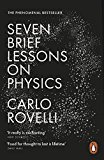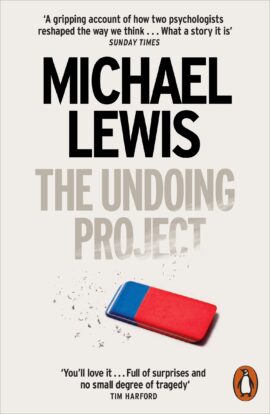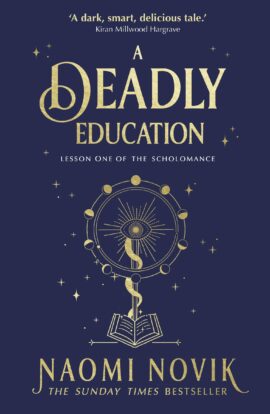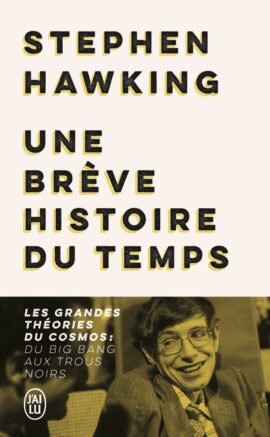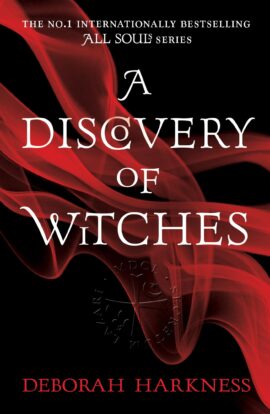«Shadow Of Night» a été ajouté à votre panier. Voir le panier
Cinder
2.691,00 د.ج
Cinder, a gifted mechanic in New Beijing, is also a cyborg. Shes reviled by her stepmother and blamed for her stepsisters sudden illness. But when her life becomes entwined with the handsome Prince Kais, she finds herself at the centre of a violent struggle between the desires of an evil queen – and a dangerous temptation.open online women love to cheat
8
Items sold in last 3 days
Ajouter 2.130,00 د.ج et bénéficier d'une livraison gratuite !
0
People watching this product now!
Estimated delivery dates: octobre 8, 2025 – octobre 15, 2025
Catégorie : Scientifique
Étiquette : en
Description
Cinder, a gifted mechanic in New Beijing, is also a cyborg. Shes reviled by her stepmother and blamed for her stepsisters sudden illness. But when her life becomes entwined with the handsome Prince Kais, she finds herself at the centre of a violent struggle between the desires of an evil queen – and a dangerous temptation.open online women love to cheat
Informations complémentaires
| Editeur |
|---|
Produits similaires
Dune – tome 1
2.145,00 د.ج
Dune : chef d'œuvre incontestable et incontesté de la science-fiction.Il n'y a pas, dans tout l'Empire, de planète plus inhospitalière que Dune. Partout, des sables à perte de vue. Une seule richesse : l'épice de longue vie, née du désert, et que tout l'univers convoite.Quand Leto Atréides reçoit Dune en fief, il flaire le piège. Il aura besoin des guerriers Fremen qui, réfugiés au fond du désert, se sont adaptés à une vie très dure en préservant leur liberté, leurs coutumes et leur foi. Ils rêvent du prophète qui proclamera la guerre sainte et changera le cours de l'Histoire.Cependant les Révérendes Mères du Bene Gesserit poursuivent leur programme millénaire de sélection génétique : elles veulent créer un homme qui réunira tous les dons latents de l'espèce. Le Messie des Fremen est-il déjà né dans l'Empire ?
Carlo Rovelli Collection 3 Books Set (Reality Is Not What It Seems, The Order of Time, Seven Brief Lessons on Physics)
2.990,00 د.ج
Brand New, Perfect Condition, allow 3-9 business days for standard shipping. To Alaska, Hawaii, U.S. protectorate, P.O. Box, and APO/FPO addresses allow 6-20 business days for Standard shipping. No expedited shipping. Over 3, 000, 000 happy customers. 100% Customer satisfaction guaranteed! Please feel free to contact us for any queries.
Carlo Rovelli Collection 3 Books Set (Reality Is Not What It Seems, The Order of Time, Seven Brief Lessons on Physics)
2.990,00 د.ج
Brand New, Perfect Condition, allow 3-9 business days for standard shipping. To Alaska, Hawaii, U.S. protectorate, P.O. Box, and APO/FPO addresses allow 6-20 business days for Standard shipping. No expedited shipping. Over 3, 000, 000 happy customers. 100% Customer satisfaction guaranteed! Please feel free to contact us for any queries.
THE UNDOING PROJECT : A FRIENDSHIP THAT CHANGED THE WORLD
3.289,00 د.ج
Bestselling author Michael Lewis examines how a Nobel Prize–winning theory of the mind altered our perception of reality.Forty years ago, Israeli psychologists Daniel Kahneman and Amos Tversky wrote a series of breathtakingly original studies undoing our assumptions about the decision-making process. Their papers showed the ways in which the human mind erred, systematically, when forced to make judgments about uncertain situations. Their work created the field of behavioral economics, revolutionized Big Data studies, advanced evidence-based medicine, led to a new approach to government regulation, and made much of Michael Lewis’s own work possible. Kahneman and Tversky are more responsible than anybody for the powerful trend to mistrust human intuition and defer to algorithms.The Undoing Project is about the fascinating collaboration between two men who have the dimensions of great literary figures. They became heroes in the university and on the battlefield―both had important careers in the Israeli military―and their research was deeply linked to their extraordinary life experiences. In the process they may well have changed, for good, mankind’s view of its own mind.
A Deadly Education
2.990,00 د.ج
____________In the start of an all-new series, the bestselling author of Uprooted and Spinning Silver introduces you to a dangerous school for the magically gifted where failure means certain death - until one girl begins to rewrite its rules.____________Enter a school of magic unlike any you have ever encountered.There are no teachers, no holidays, friendships are purely strategic, and the odds of survival are never equal.Once you're inside, there are only two ways out: you graduate or you die.El Higgins is uniquely prepared for the school's many dangers. She may be without allies, but she possesses a dark power strong enough to level mountains and wipe out untold millions - never mind easily destroy the countless monsters that prowl the school.Except, she might accidentally kill all the other students, too. So El is trying her hardest not to use it... that is, unless she has no other choice.Wry, witty, endlessly inventive, and mordantly funny - yet with a true depth and fierce justice at its heart - this enchanting novel reminds us that there are far more important things than mere survival.____________'Hilarious and wild! Take any fictional magic school, make it as over-the-top dangerous as possible, and populate it with a bunch of snarky teenagers: the result is pure batshit fun.'N.K. Jemisin, three-time Hugo Award winner and author of The Fifth Season'Novik deliciously undoes expectations about magic schools, destined heroes, and family legacies. A gorgeous book about monsters and monstrousness, chockablock with action, cleverness, and wit.' Holly Black, #1 New York Times bestselling author'The Scholomance is the dark school of magic I've been waiting for, and its wise, witty, and monstrous heroine is one I'd happily follow anywhere-even into a school full of monsters.'Katherine Arden, Sunday Times bestselling author of The Bear and the Nightingale'The wonderful cast of characters will grab a hold of your heart and you'll never want to leave this deadly school ... a fantasy that delights on every level. I loved this brilliant book.'Stephanie Garber, #1 Sunday Times bestselling author of the Caraval series'Eyeball-meltingly brilliant. Novik is, quite simply, a genius.'Kiersten White, New York Times bestselling author of And I Darken'Sharp, witty, and darkly effervescent, A Deadly Education is Naomi Novik's fresh take on the concept of the magic school. One of my favorite reads of the year.'Rory Power, New York Times bestselling author of Wilder Girls'Naomi Novik reinvents the magical school story by working a strange, funny, wild, dark magic all her own. This is not just your next great read - it's your new obsession.'Gwenda Bond'A delightfully brutal world ... and a practical, ruthless heroine with the guts and wits to survive it.'Emily Skrutskie'Fresh, smart, and delightfully unique. It's Hogwarts with higher stakes and sharper claws, and I absolutely loved it.'Alix E. Harrow'A nightmare from which I never wished to wake. Savage, inventive, and soulful, Novik grasps the totems of childhood that linger in your mind-schools of magic, curses, cutthroat classmates, monsters-only to twist them into a grand new tale that'll make you believe in magic again.'Pierce Brown, New York Times bestselling author of Dark Age
Une brève histoire du temps: Les grandes théories du cosmos : du Big Bang aux trous noirs
1.300,00 د.ج
Voici le premier livre que Stephen Hawking a écrit pour le grand public. Il y expose, dans un langage accessible à tous, les plus récentes découvertes des astrophysiciens. Retraçant les grandes théories du cosmos depuis Galilée jusqu'à Einstein, racontant les ultimes découvertes en cosmologie, expliquant la nature des trous noirs, il propose ensuite de relever le plus grand défi de la science moderne : la recherche d'une théorie permettant de concilier la relativité générale et la mécanique quantique.Stephen Hawking a lutté pendant plus de quarante ans contre une très grave maladie neurodégénérative. Malgré ce handicap, il a consacré sa vie à tenter de percer les secrets de l'Univers et à nous faire partager ses découvertes. Un livre fascinant devenu un best-seller mondial.
Discovery of Witches
2.562,00 د.ج
It begins with absence and desire. It begins with blood and fear. It begins with a discovery of witches. When historian Diana Bishop opens an alchemical manuscript in the Bodleian Library, it's an unwelcome intrusion of magic into her carefully ordered life. Though Diana is a witch of impeccable lineage, the violent death of her parents while she was still a child convinced her that human fear is more potent than any witchcraft. Now Diana has unwittingly exposed herself to a world she's kept at bay for years: one of powerful witches, creative, destructive daemons and long-lived vampires. Sensing the significance of Diana's discovery, the creatures gather in Oxford, among them the enigmatic Matthew Clairmont, a vampire genticist. Diana is inexplicably drawn to Matthew and, in a shadowy world of half-truths and old enmities, ties herself to him without fully understanding the ancient line they are crossing. As they begin to unlock the secrets of the manuscript and their feelings for each




